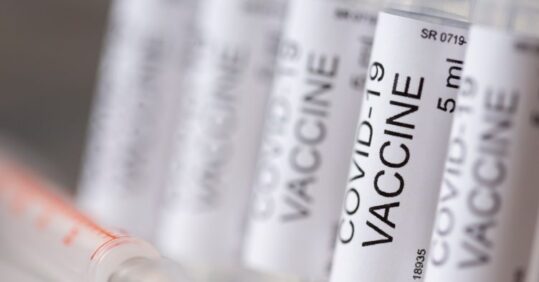Fully vaccinated healthcare workers can avoid isolation in ‘exceptional circumstances’

Some fully vaccinated healthcare will be able to avoid isolation if identified as a close contact of someone with Covid, the Government has announced.
The Department of Health and Social Care (DHSC) said yesterday that all frontline health and social care staff, including those in general practice, can be exempted from isolating in ‘exceptional circumstances’ when absences could lead to a ‘significant risk of harm’.
Instead, ‘testing mitigations’ will be required including a negative PCR test and daily negative lateral flow tests for ‘a minimum of seven days and up to 10 days or completion of the identified self-isolation period’, it added.
But the Association of Directors of Adult Social Care Sector (ADASS) is among the social care groups raising concerns that the measures present ‘very significant risks’ because they are being introduced at a time when ‘community transmission rates are very high across the country’.
Related Article: Funded nurse workforce plan needed for neighbourhood health services
Although ADASS welcomed the ‘initial attempt to alleviate some of the pressure our frontline workforce has experienced and still experiences to date’, it added that ‘the Government needs to ensure that limitations and regulations for this new measure are stated clearly’.
The DHSC stressed the measure is being introduced to ‘alleviate pressure on NHS and social care services’ and ‘only to frontline NHS and social care staff where their absence may lead to a significant risk of harm’.
The decision to allow the exemption should be made ‘on a case-by-case basis’ and only after a risk assessment has been carried out by the organisation’s management, it added.
It must then be authorised by the local director of infection prevention and control, the lead professional for health protection, or the relevant director of public health, it said.
It continued: ‘Careful consideration should be given by local NHS and social care organisations to the risk of onward transmission compared to the risk to delivery of critical services.’
Those permitted to attend work will be considered to have a ‘reasonable excuse’ under the self-isolation regulations because ‘their absence could result in harm’, it said.
However, it added that they will continue to receive self-isolation reminders and will remain legally obliged to self-isolate when not at work.
The exemption will be contingent on healthcare workers:
Related Article: Nurse had to ‘freeze’ PPE during pandemic to re-use in care home, Covid inquiry hears
- Being fully vaccinated, defined as having received two doses of an MHRA-approved vaccination with 14 days having elapsed since the final dose
- Taking a PCR test and self-isolating until receipt of a negative result and only attending work if the result is negative
- Taking daily LFD tests prior to starting work each day and reporting the results, staying at home and arranging a PCR test as soon as possible if they receive a positive result
- Staying at home and immediately arranging a PCR test if they develop any Covid symptoms
- Complying with all relevant infection control precautions and wearing PPE ‘properly’ throughout the day during the 10-day period, with any breaches to be reported immediately
- Not working with any clinically extremely vulnerable patients or residents
Vic Rayner, National Care Forum chief executive, noted on Twitter that the updated guidance was ‘published at 9.18am on day of implementation’. She added: ‘Nothing what exemption means re issues like public transport’.
Martin Green, chief executive of Care England said: ‘Care England recognises the need to maintain sufficient levels of health and social care staff and is glad that social care has been recognised as frontline too.
‘NHS and care staff are experts in infection control added to which the vast majority have received both vaccinations which we hope, in conjunction with PPE and other infection control procedures will reduce the risk of transmission.’
Related Article: More nursing apprenticeships and changes to student travel expenses
Health secretary Sajid Javid said: ‘As we learn to live with this virus, it’s important that we ensure frontline staff can keep providing the best possible care and support to people up and down the country.’
Deputy chief medical officer Dr Jenny Harries said: ‘With the number of cases continuing to rise, it is imperative that we do everything we can to manage this virus and support our NHS and social care services under the strain of increased demand and sustained pressure.’

See how our symptom tool can help you make better sense of patient presentations
Click here to search a symptom




